Basic arithmetic practice Numbers Worksheets for Ages 4-7
5 filtered results
-
From - To
Boost your child's confidence in math with our Basic Arithmetic Practice Numbers Worksheets, designed for ages 4-7. Engage young minds with fun and interactive exercises that cover essential arithmetic skills, including addition, subtraction, and number recognition. These worksheets are crafted to build a solid foundation in early math concepts, making learning both effective and enjoyable. Perfect for preschool, kindergarten, and early elementary students, our practice sheets foster critical thinking and problem-solving abilities. Download now to see your child soar in mathematics with activities that ignite their passion for numbers. Start your child’s math journey today!
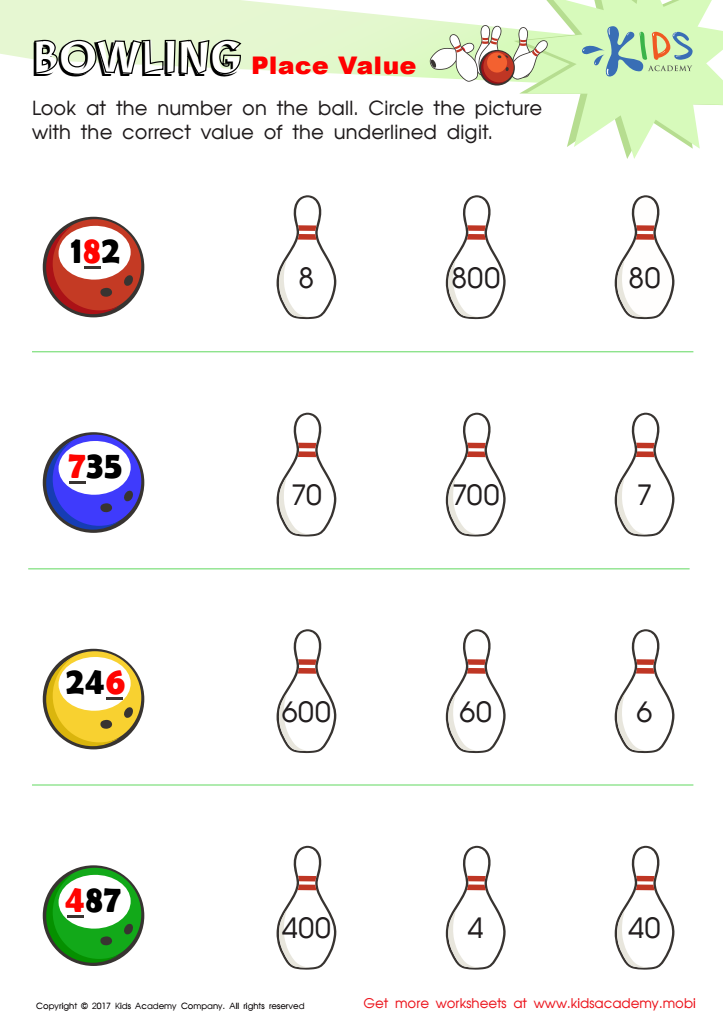

Place Value Worksheet
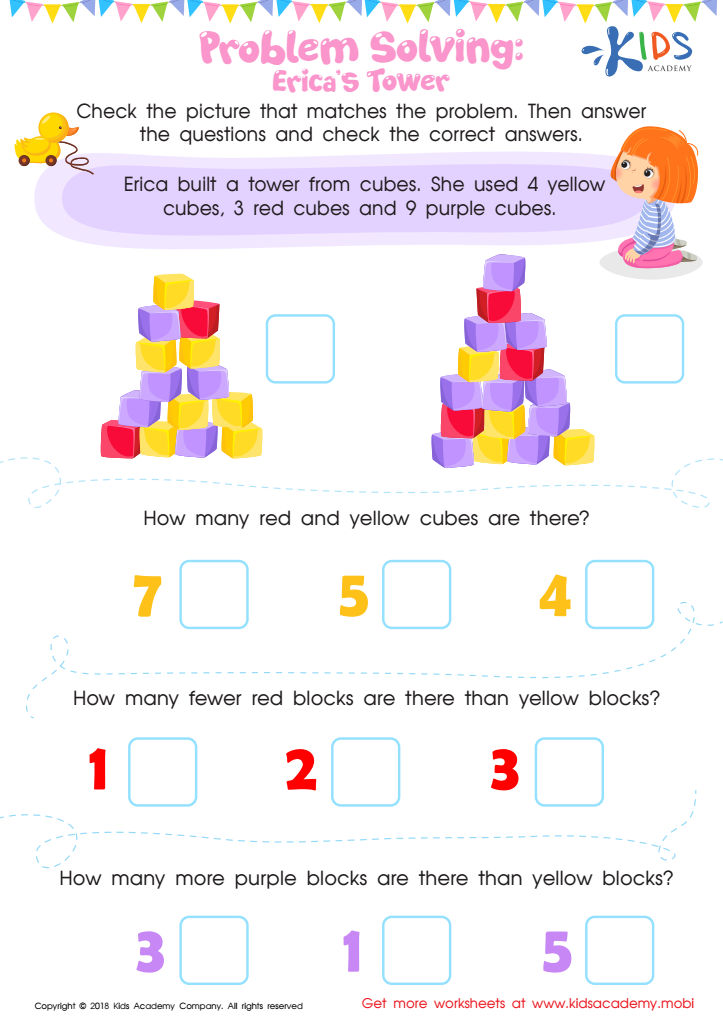

Problem Solving: Erica's Tower Worksheet
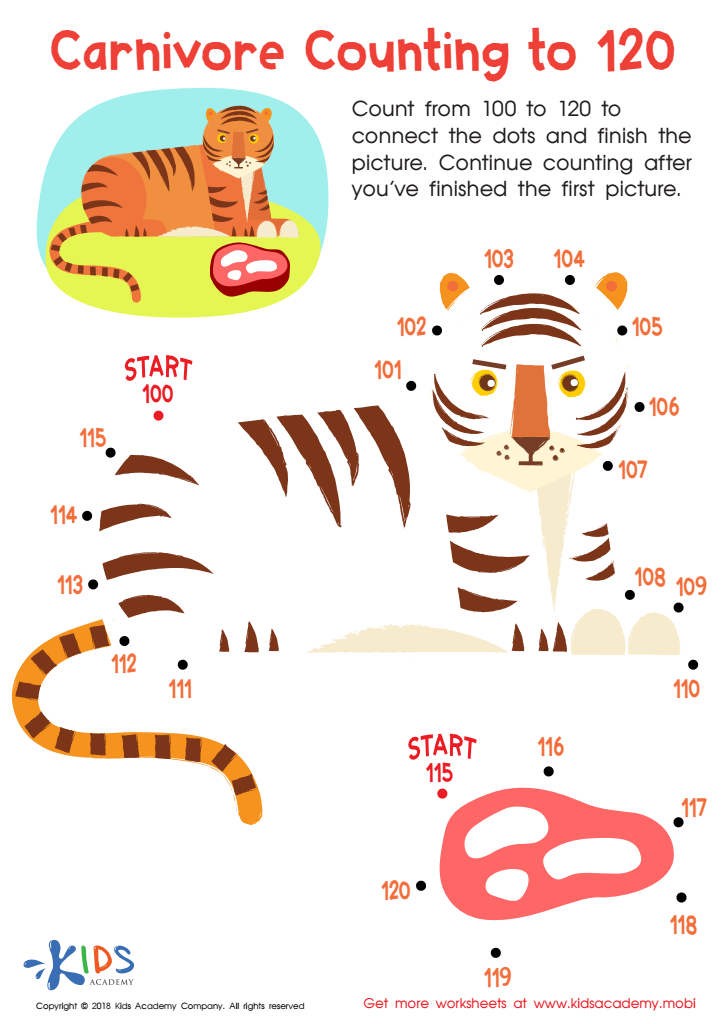

Carnivore Counting to 120 Worksheet
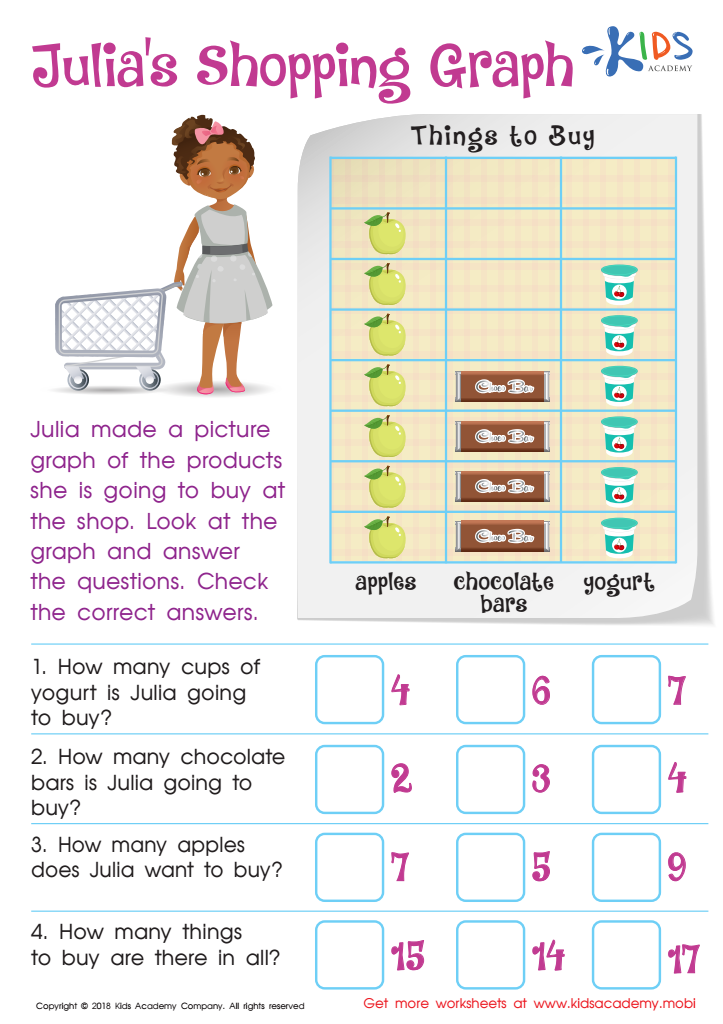

Julia's Shopping Graph Worksheet
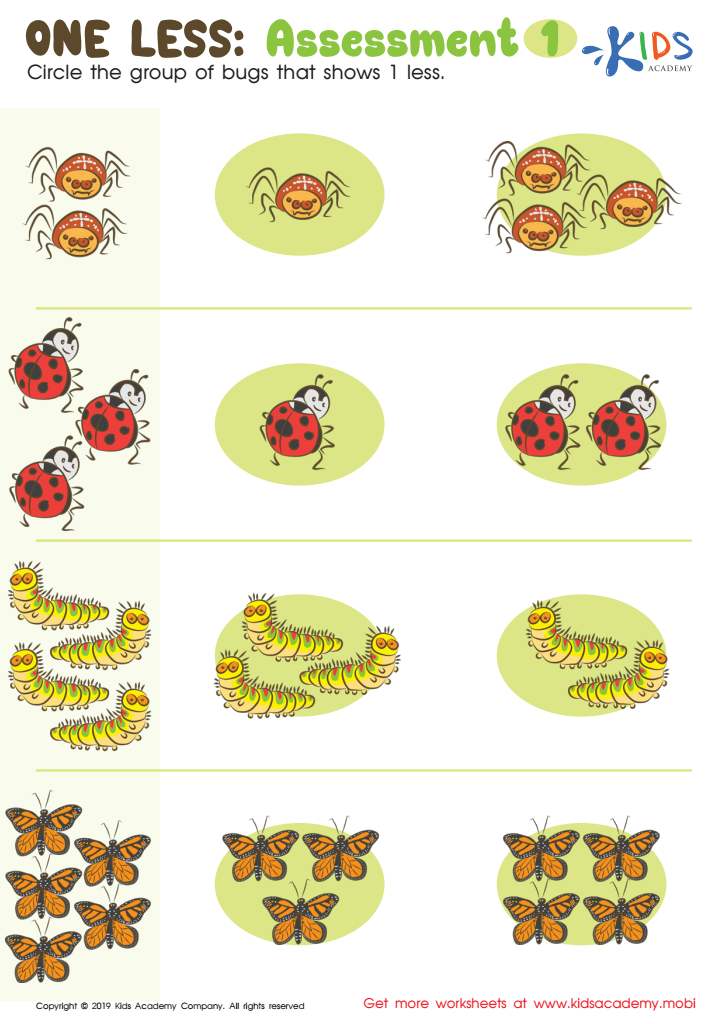

One Less: Assessment 1 Worksheet
Parents and teachers should care about basic arithmetic practice for children aged 4-7 because it lays the foundational groundwork for all future mathematical understanding. At this crucial early stage, children’s brains are rapidly developing, and introducing them to numbers and basic arithmetic helps enhance their cognitive skills, problem-solving abilities, and logical thinking. Exercises that involve counting, addition, and subtraction help young learners recognize patterns, compare sizes or quantities, and understand the concepts of more or less, which are important for their everyday understanding of the world around them.
Basic arithmetic also supports a child’s readiness for more complex subjects like geometry, algebra, and data analysis they will encounter later in their academic journey. Early proficiency in math can also boost a child’s confidence and enthusiasm towards learning, fostering a positive attitude that can persist throughout their education. Engaging young learners in arithmetic practice, especially through playful and interactive methods, ensures they develop strong numeracy skills in a fun and enjoyable manner. Overall, ensuring children grasp these fundamental skills early on sets them on a path to academic success, arming them with critical tools they will continually build upon in later years.
 Assign to My Students
Assign to My Students



















